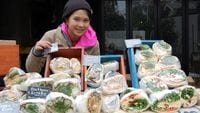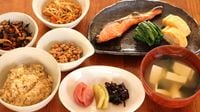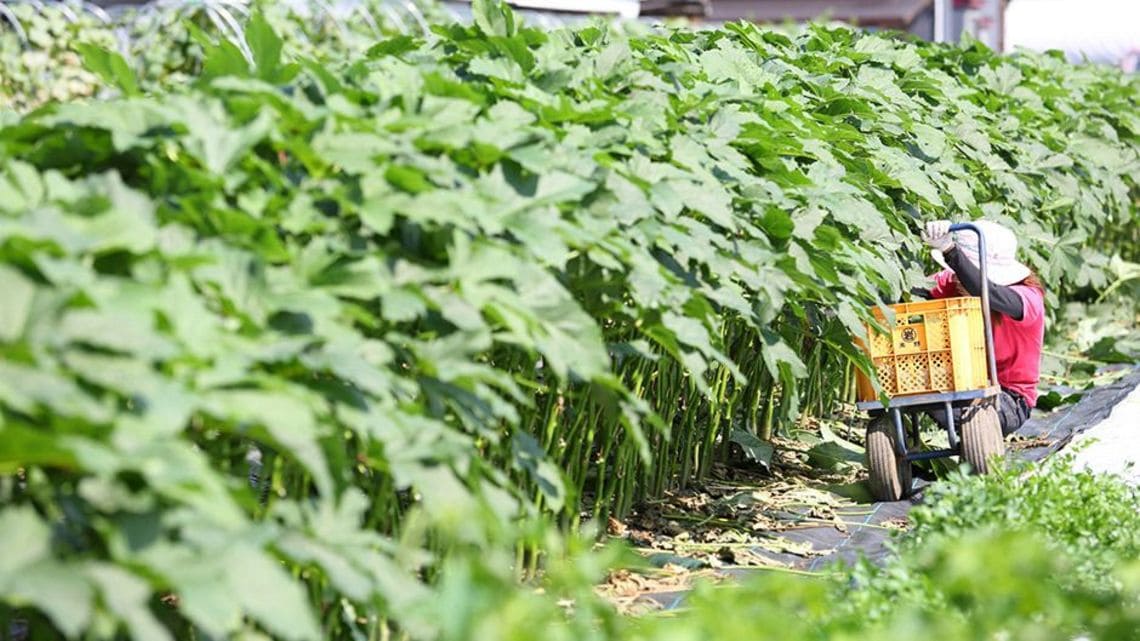
Tsuchiura City, Ibaraki Prefecture is 60 km (only one hour by train) from Tokyo.

The Kyu Niihari region—a sprawling area on the west side of Tsuchiura—is surrounded by an abundance of nature, with Mt. Tsukuba on the north side, and Kasumigaura, the second largest lake in Japan, on the east side. Blessed with a mild climate throughout the year, this region produces a wide variety of vegetables in the four seasons.
We heard of a farm in this rich environment that engages in organic outdoor farming and set out for an interview.
Hisamatsu Farm aspires to grow many items organically
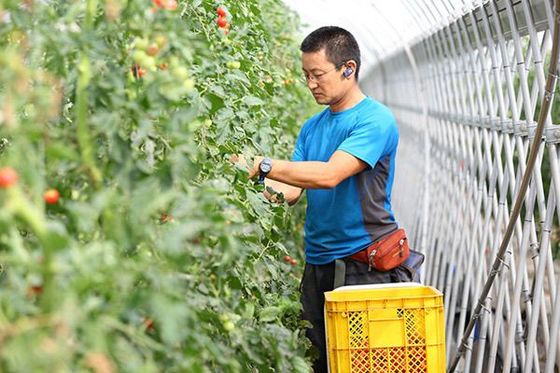
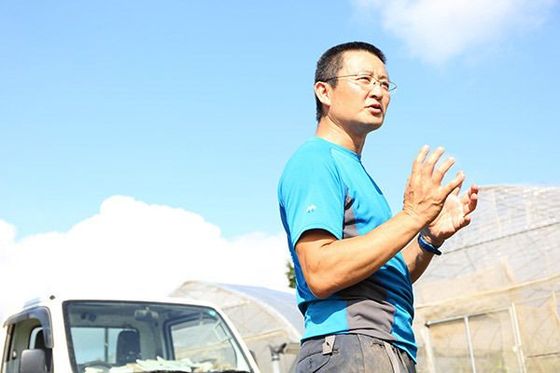
Since its establishment in 1999, Hisamatsu Farm has engaged in insecticide-free organic farming, with appreciation and respect for Niihari’s natural environment.
The Farm is resolute in sticking to multiple vegetable, outdoor farming that is affected by natural conditions and is not necessarily efficient.
“We do not have a formula of success, like if we do this, we will get these results. Vegetables are living creatures. We cannot help having different results each time. To minimize the differences, every day we observe what factors are related to the results, and proceed by trial and error. It is always exciting because vegetables never grow the same way as the year before,” chuckles Tatsuo Hisamatsu, head of the farm.
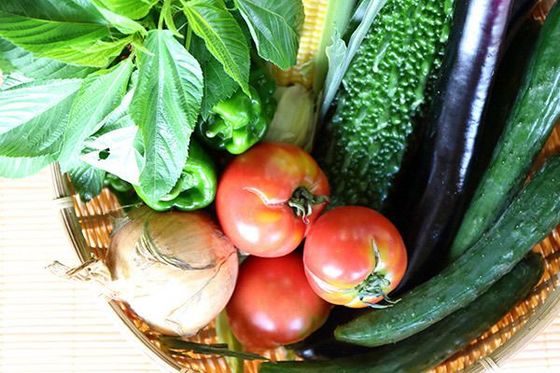
Hisamatsu believes in serving consumers freshly harvested, delicious vegetables that are grown naturally in their natural season, instead vegetables grown in a controlled environment disconnected from the region’s climate or season.
Carrying the passion of the growers, Hisamatsu Farm’s vegetables are directly delivered to restaurants and consumers, without going through agricultural cooperatives or wholesalers. There are countless repeated customers as word spreads that the vegetables are full of vitality and have a strong taste.
Special taste of seasonal okras
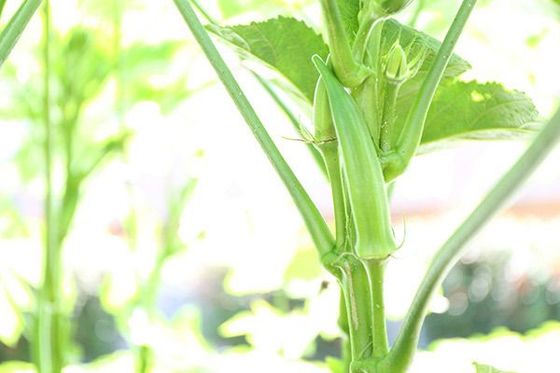
When we visited the farm for the interview in early August, we saw large okras in the corner of the vegetable field, the first of the season.
“Even though they’re big, they have good elasticity, don’t they? That’s because they have a lot of vitality during the growth period. During this season they sometimes grow five centimeters in one night,” says Hidekazu Sogo, one of the farm’s members.
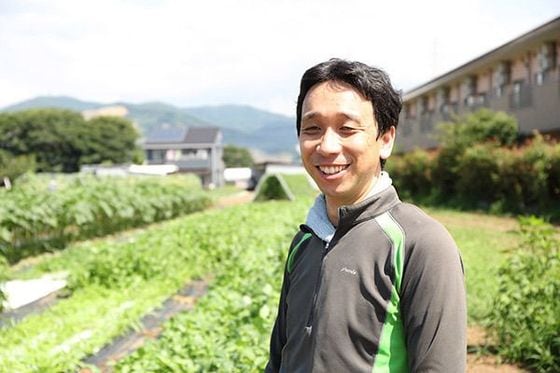
Organic farming is susceptible to damage by insects and disease, but the okras that survive these challenges grow to be strong, under the hot summer sunlight.
Sogo says “The first okras are juicy and they also taste young. Okras at the end of the harvest season have a more concentrated flavor because they take time to grow. Even though they grow on the same tree, the fruit changes taste depending on the season. I hope consumers can enjoy these changes of season.”
Sogo snapped an okra off the plant and let us taste it. We ate the okra raw but there were no fibrous parts. It had a supple taste, and its young green flavor spread throughout our mouths.
There are many vegetables whose only appeal is their sweet taste. However, says Sogo, Hisamatsu Farm is looking for a special taste, not just sweet but a complex taste with each vegetable’s distinct flavor, bitterness, depth and aroma intertwined.
It is for this special taste that the farm is sticking to the seasonal outdoor farming, even if it may not be the most efficient method.
Non-anonymity makes for tasty vegetables
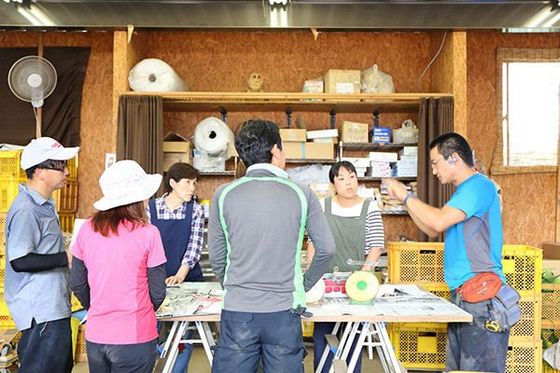
The relationship between Hisamatsu Farm and its customers is not just one of selling and buying vegetables.
Driven by their desire to have cordial relationships with consumers, the farm invites consumers to the farm every year in early summer and autumn to allow them to tour the farm.
“If they say the vegetables were tasty we will try to build on it, and if they are not happy we work to change it. We are not looking to produce vegetables that appeal to millions of strangers. We want the people right in front of us to be happy. We think of the faces of the people who will eat the vegetables when we grow them. Our customers eat them thinking of us. This relationship is fundamentally at the base of Hisamatsu’s tasty vegetables.”
“Inspiration from directly interacting with consumers motivates farm members to grow vegetables,” says Hisamatsu.
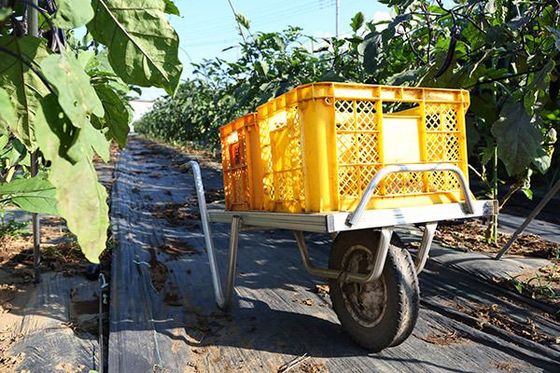
Having opted for the natural farming method, Hisamatsu Farm constantly faces challenges in their day to day farming. Sometimes it provokes heated discussions among the members, beyond their positions, before they agree on how to deal with the challenges.
Why all this? Because the farm aims to produce tasty vegetables that enrich people’s dietary lives.
The special taste—made possible only by Hisamitsu Farm constantly facing challenges, daily interactions and trial and error with nature and people—will continue to attract people and enrich the food on their dinner tables.
(Writer : DAISUKE FURUYA
/ Photographer : SATOSHI TACHIBANA)
Information supplied by : Hidekazu Sogo, Hisamatsu Farm
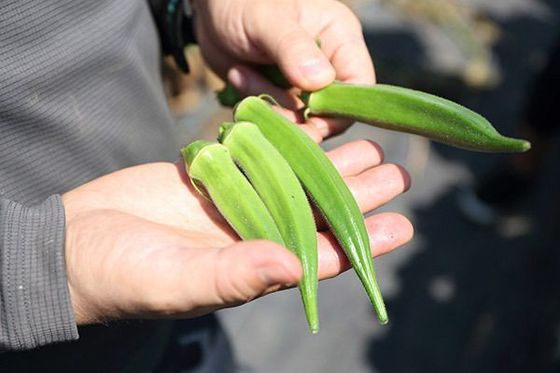
In Season
From late July to September
Look for
If you bend the tip and it bends flexibly, it is a fresh okra. If it stays rigid, it is a fully mature okra and has a more fibrous texture.
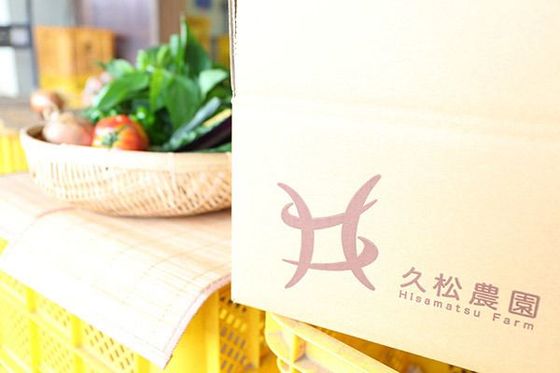
Hisamatsu Farm
Location : Takaoka, Tsuchiura City, Ibaraki Prefecture
URL / Online shop

